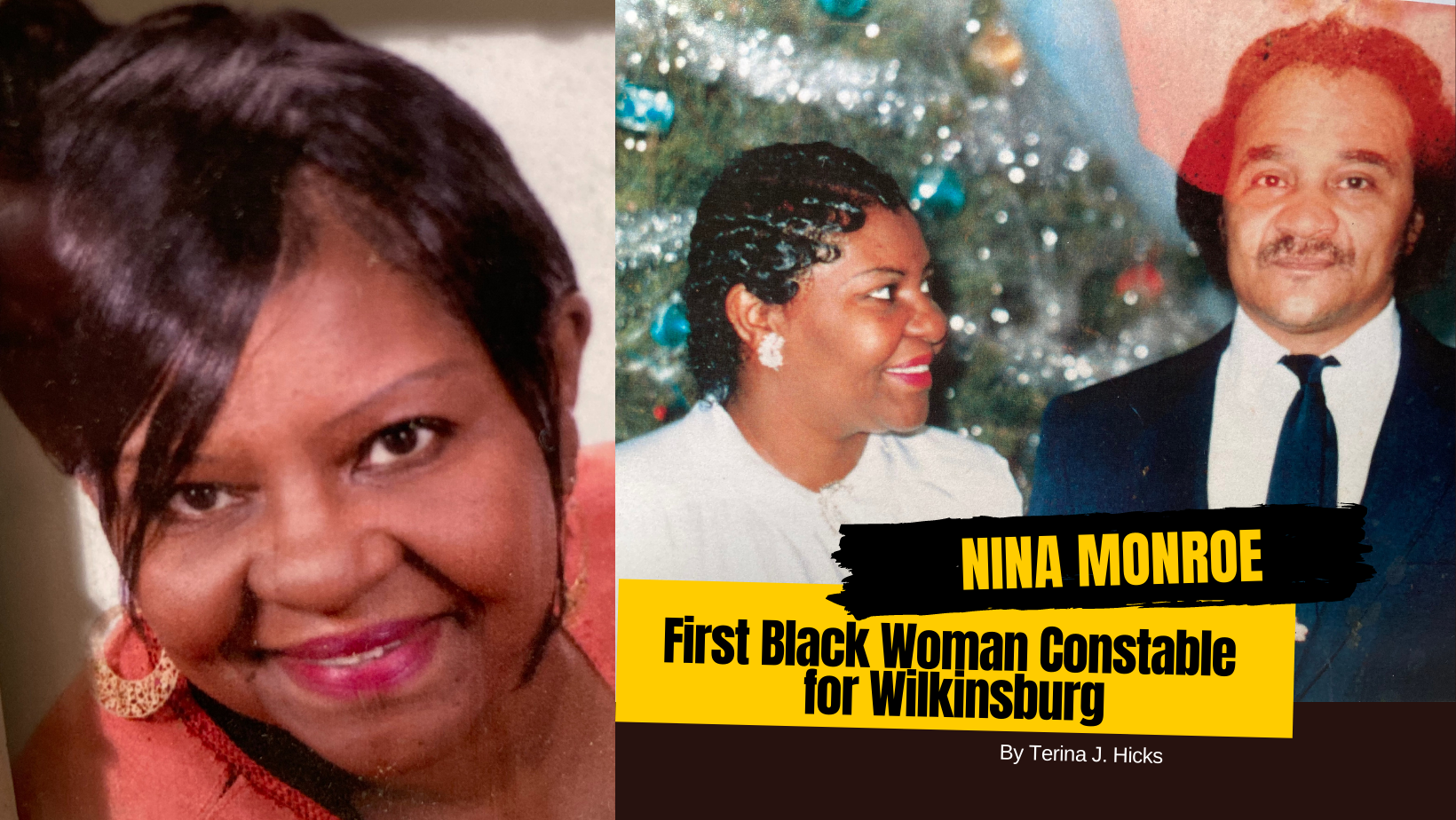
Terina J. Hicks: You were the first Black woman constable for Wilkinsburg. What challenges did you face during your tenure?
Nina Monroe: I was the first Black woman elected constable in the county. Constable is an elected position, with each term lasting for six years. I served as a constable for over 18 years, elected to the position three times. I also served two years as a Deputy and 15 years as a Deputy Sheriff in the Sheriff Reserves. I’ve had a lengthy career in law enforcement, and I’m grateful.
One of the first obstacles I faced as a Constable was deputizing my husband. As an elected constable, I could appoint deputies as needed to assist me with my duties, and I wanted my husband to be my deputy. I specifically wanted my husband because there was no one better to watch my back than him. Initially, this idea met with resistance. Although there was no restriction or bylaw to prohibit this, I wrote the President Judge, who authorized my request.
TJH: Was it your career goal to become a constable?
NM: I had never considered a career as a constable, but you never know where life might lead you. When the constable in my ward was retiring, we started talking, and he suggested that I consider the position, stating, “why don’t you run for it?” He suggested it lightheartedly, but I took the opportunity and the challenge very seriously. I signed my name on the ballot, campaigned for the position, and engaged with the community. The Wilkinsburg Gazette published a story on my campaign for constable. I worked hard, and it was such a blessing when I was elected as the constable for the community.
TJH: Has there been election of other Black women in Wilkinsburg since you broke the barrier?
NM: I have not met any other Black women constables, not while working. However, if my position as the first Black woman constable for Wilkinsburg has encouraged the future generation or has helped pave their way, I think that’s a promising start.
TJH: Is the training for a constable the same as a police officer?
NM: The jobs are similar. The responsibilities of a constable are to enforce both criminal and civil laws and complete judicial duties. It ranges from serving warrants, taking prisoners back-and-forth from jail to hearings, and working for the magistrate court. For police officers, their job is to enforce criminal and traffic laws, such as investigating robberies and murders. They are also usually on-call at their stations.
TJH: What advice would you give Black women looking to become constables or police officers?
NM: I believe Black women can be anything they want to be when they put it in their minds. I would encourage them not to put limits on themselves or allow society to limit them and their abilities.
TJH: Since retirement, what do you do in your spare time? Do you consult or train others who are interested in becoming a constable?
NM: I am retired and, now I enjoy spending time with my family. Although I’ve never trained or consulted anyone pursuing a career as a constable, I have met with individuals I used to take to court. I have met amicably with them because I strongly believe in treating others the way I would want to be treated. My motto over the years is – Our actions make a world of difference, both in life and our professions. This motto would also be my advice to those looking to become constables.



















